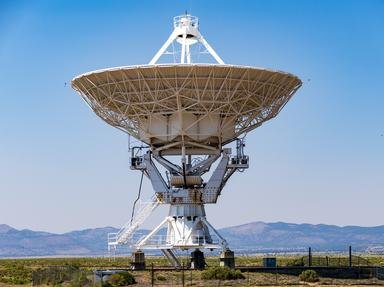Quiz Answer Key and Fun Facts
1. Which is the most predominant element in the Sun?
2. Which planet's rotation period is greater than its revolution period?
3. Who was the first astronomer to prepare a catalogue for stars according to their differences in brightness?
4. Which of these astronomers believed in a geocentric universe?
5. What is the nearest star to the earth?
6. Which is the most distant celestial object visible to the naked eye?
7. When was Sputnik 1 launched?
8. What is the name of the space probe sent to Mars by India in 2013?
9. In which year was Neptune discovered?
10. On which moon of Saturn was the Huygens probe landed in 2005?
Source: Author
achu159
This quiz was reviewed by FunTrivia editor
rossian before going online.
Any errors found in FunTrivia content are routinely corrected through our feedback system.

